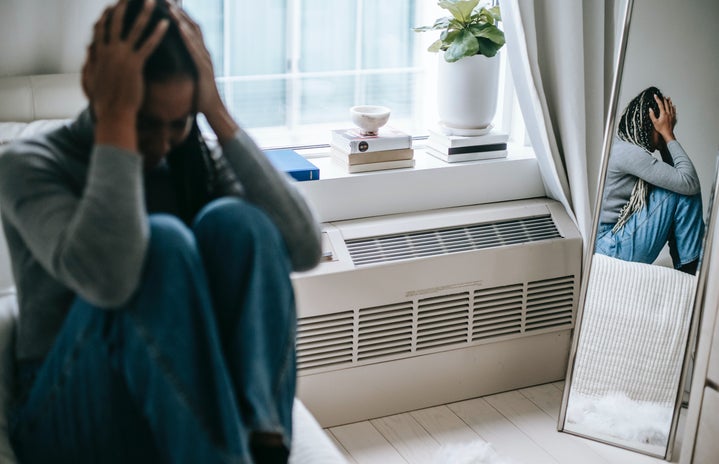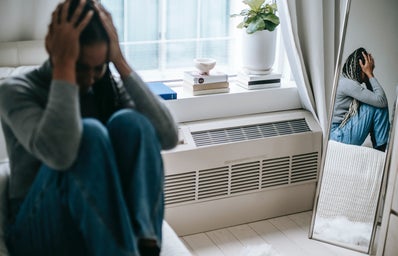I gave myself a head injury in the dumbest way possible, but it taught me an important lesson.
In early March of 2021, I gave myself a wicked concussion. I was in the laundry room at my apartment building, which has two dryers stacked on top of each other. As I was taking out laundry from the bottom dryer, the door of the top dryer slowly swung open. I stood up extremely quickly and slammed the top of my head on the bottom ridge of the door. At first, I was more shocked than anything. I felt a small pang of discomfort, but it was nothing overwhelming. The pain quickly subsided and I went on to fold my laundry and finish my chores.
Later that night as I laid in bed, my head began to throb. Horribly. I felt it pound in the exact region where I had previously hit it that day. I forced myself to sleep through it, but a couple hours later, the vomiting began. I think I got sick at least five times in that short night. I slept in small bursts and eventually stayed up when the early morning hours hit. I did research on different medical clinics and called all of them when they opened. None of them would see me due to the severity of my head injury. They all recommended that I go to the emergency room instead.
After talking with my family, I decided against going to the ER. I was born deaf and I have two cochlear implants (Mayo Clinic). This prohibits me from getting an MRI, a key component in identifying head injuries. MRIs use strong magnetic fields and radio waves to make images. My implants have magnets in them, which could shift and cause injury during an MRI (FDA). I decided that if I self-monitored my symptoms and took things slowly, I’d be okay. The following weeks after my head injury, I only used screens for classwork, stayed hydrated, rested often and ate more protein.
After this experience, my biggest piece of advice is to slow down. Mistakes and injuries don’t only happen when you’re playing contact sports. Concussions can happen quickly with mistakes in our everyday tasks. Allow yourself time so you don’t have to hurry through your tasks. If I could talk to myself on that day, I’d tell myself “take your time with your laundry, you’re in no rush.” When you’re crossing the street, make sure you’re putting one foot in front of the other and watching where you’re going. Look out for bikers and other pedestrians. Close the cupboards in your kitchen. The small things can help you avoid bonking your head. If you do hit your head, tell your roommates, friends or family. That way, you’ll have someone keeping an eye on you. Even if you think it’s nothing to worry about, it’s better to be safe than sorry. Stay safe out there friends!
Resources
- Mayo Clinic’s information on concussions
- Emergency Rooms
- UW Hospitals & Clinics
- 600 Highland Avenue
- 608-262-2398
- UnityPoint Health-Meriter
- 202 S. Park Street
- 608-267-6206
- SSM Health St. Mary’s
- 700 S. Park Street
- 608-251-6100
- UW Hospitals & Clinics
- UHS after-hours nurse advice line: 608-265-5600 (option 1)


